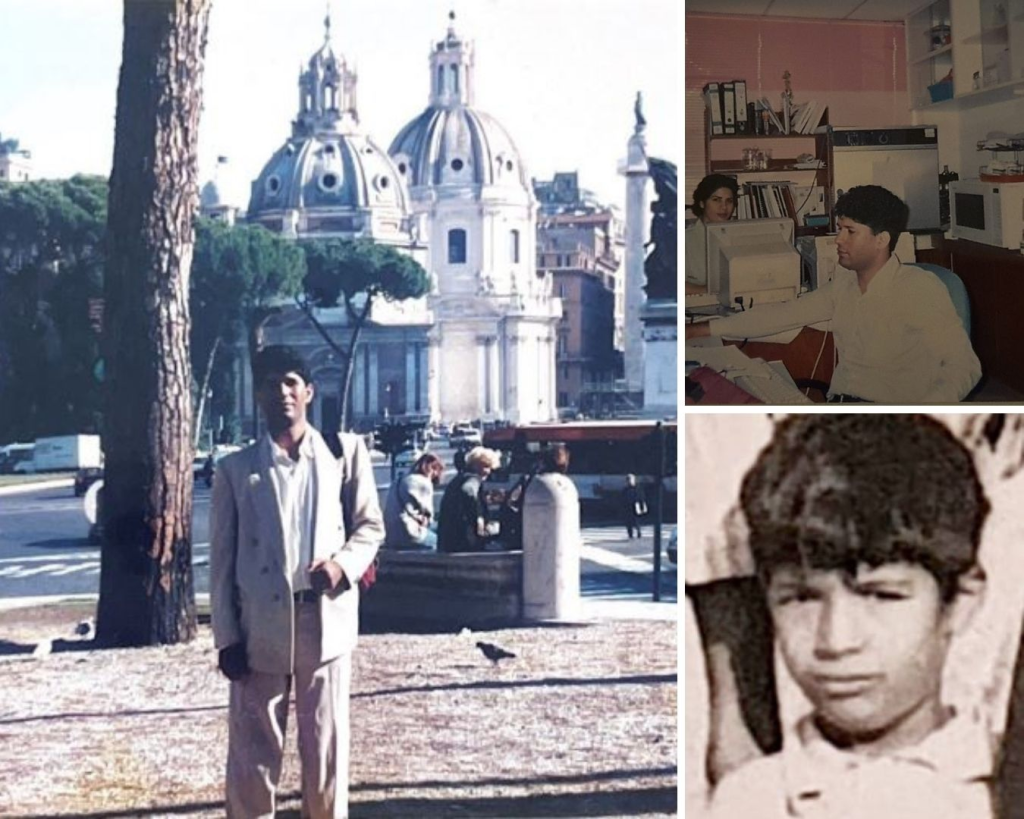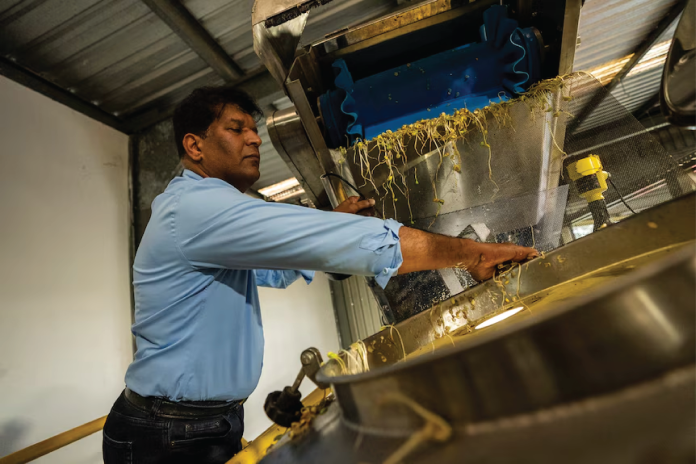Australia means so much to Iranian-born Sam Jahangard, he’s willing to turn down a $500-million business deal.
The biotechnologist invented a natural agricultural waste solution, which he wants to keep in Australia, instead of accepting an offer from the United Arab Emirates.
He said his loyalty and love for the country made him comfortable to take the multi-million-dollar hit.
“Australia was the only country that offered me and my family nationality so [I’ve] become a very proud Australian as an Australian national,” he said.
“I actually feel rooted here and Australia offers a platform for very high quality education to my only child and I see a future.”
The Iranian-born scientist migrated to Australia 17 years ago and became a citizen.
Dr Jahangard grew up in a small Iranian fishing village in a house with dirt floors and no electricity.
He studied at European universities on scholarships and became a biotechnology expert focusing on aquaculture.
His knowledge led him to create ways to quickly turn agricultural waste streams from feedlots, food waste, invasive weeds and species, into chemical-free compost, fertilisers and pest management products.
It was this biotechnology that attracted the eye-watering investment offer from The United Arab Emirates.

Being a skilled immigrant
Dr Jahangard is one of almost 1.76 million skilled migrants to have come to Australia since 2000.
His skills did not guarantee work in his field.
Dr Jahangard faced unexpected challenges in his career and often found himself without a job to suit his skills.
“I was at some stage of my life when I lost a job. I did pizza delivery in Victoria,” he said.
But his passion for finding natural solutions to problems remained.
In his spare time, he developed a natural, preservative-free probiotic drink for his son.
He later expanded his efforts to mass produce and commercialise these products in Melbourne.
“I started that business, managed to mass produce purely natural products, no preservatives, no chemical, all using biotech to produce it,” he said.
However, he soon realised the limitations of his marketing skills and could not compete with dominant companies in the market.
In 2017, Dr Jahangard relocated his family to Queensland but, unable to find a job in his industry, he had to take on work shucking oysters.
“My income per hour was $11,” he said.
This experience fuelled his determination to create his own opportunities.
“Instead of waiting for … other people to open doors for me, I decided to make that door for myself,” he said.
Eureka moment
Dr Jahangard was employed at a Toowoomba fodder company to fix a mould problem and increase the nutrient profile of grass in the food.
He applied his knowledge in biotechnology, aquaculture, food and beverage manufacturing and formulation and had a eureka moment.
“I ended up where they needed something natural based to fix the problem on a one-week growing period,” he said.
“That put me in the in the path to use my skill set in biotechnology to involve in agriculture.”
Dr Jahangard developed five distinct formulations.
His formula for chemical-free compost reduced production time from 180 days to a maximum of five.
Using waste from feedlots, invasive plants and unwanted food he also created natural fertilisers and ways to control insect pests.
“The scale of this cutting edge technology we are developing is game changing for Australia, game changing in global scale, and it will contribute to [benefits for the] environment, it will contribute to job creation, it contribute to economy,” he said.
Dr Jahangard’s natural formulas for compost, fertilisers and integrated pest management are still in the testing and trialling phase.
“I tried to present to a number of institutes here [in Australia] to get help to build up a facility to mass produce,” he said.
“Unfortunately, I couldn’t get [any interest] so given my international network and connection, I travelled to one of the biggest organic foods and agriculture expos in Dubai.”
At the expo, Dr Jahangard presented his products to former colleagues and encouraged them to assess the market potential.
“I told them, ‘If you like, come and join me and help me to build a facility to mass produce this product in Australia,'” he said.
Calling Australia home
While he has turned down the offer to relocate the business to the Arab Emirates, he and his team are continuing to work on commercialising his natural biotech solutions.
Dr Jahangard is still looking for investors to keep the innovation on Australian shores.
He said his main drive was to make a positive impact and leave a legacy for his only child rather than making money.
“My goal is to have an opportunity to make the world better,” he said.
“It’s not about my generation, it’s about future generations.
“We’ve been very unkind to soil, to planet Earth, to environment.
“I am very proud to be part of this journey.”
Source: www.abc.net.au


